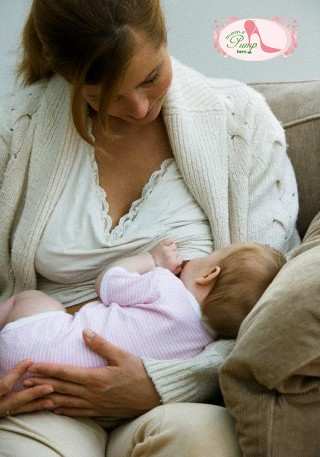We nursing moms know that breastmilk is best, but several articles recently published by well-regarded research groups have shaken some of our thoughts about the topic. I reached out to Bundoo’s OB/GYN Jennifer Lincoln (who is also an International Board Certified Lactation Consultant) on the topic.
Considering a recent article regarding toxic chemicals being passed from mother to infant via her breastmilk, what should nursing women do with this information?
Dr. Lincoln’s advice for us is to relax and continue nursing. She doesn’t dismiss the studies, but she encourages us to not allow studies like these to make us have “mom guilt” for breastfeeding our babies. “We know that what a mother is exposed to in the air she breathes, the food and water she consumes, and the things she touches during pregnancy and lactation can potentially cross the placenta and enter her breast milk. However, despite this, no study has ever shown this to be at a level concerning enough to recommend that a woman formula-feed or stop nursing. Despite these environmental contaminants, we know that the benefits of breastfeeding still far outweigh any risk and that breast milk is still the healthiest food for a baby – way better than formula!”
Are there any actions you'd recommend a nursing mom take to avoid or decrease her risks of passing toxic chemicals to her baby?
There are a few steps a nursing mom can take if she is concerned about chemical exposure, according to Dr. Lincoln. She recommends we wash all produce before consuming it, and wear gloves if you will be gardening. Some doctors may suggest we buy organic foods to decrease the risk of pesticide exposure, but the increased cost of shopping for organic foods may keep a family from eating fruits and vegetables). Dr. Lincoln also suggests that we follow government guidelines regarding safe fish consumption and to wear Proper Protective Equipment (PPE) if we work in a job where chemical exposure is routine. “Think of what you use on your body regularly: shampoo, conditioner, creams, make-up, etc – these products can have a ton of chemicals in them. Consider reducing your usage or switching to brands known for eliminating certain concerning compounds such as parabens or triclosan.”
The good news is we know the questionable (so-called toxic) chemicals are not building up in a baby’s body because most studies show the concentration of these chemicals decrease when a baby stops breastfeeding, but more research is certainly needed.
Dr. Lincoln’s bottom line is “Keep on breastfeeding!”


